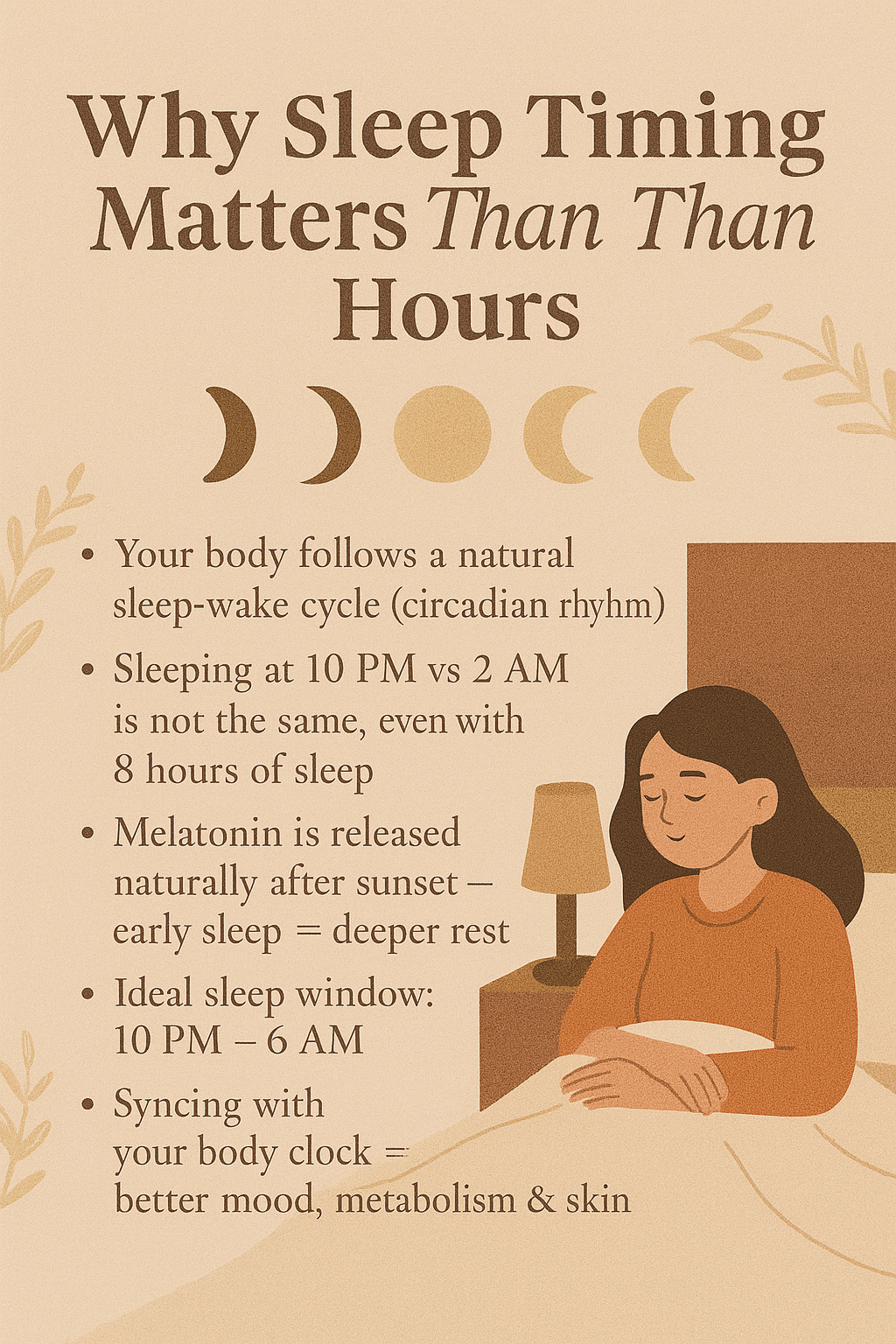Why Sleep Timing Matters More Than Just the Number of Hours You Sleep
We often hear that getting eight hours of sleep is essential—but what’s rarely talked about is when you sleep. Timing plays a major role in how restorative your sleep truly is. Sleeping at the right time, in sync with your body’s natural rhythm, can dramatically improve your mental and physical well-being.
Your Body Follows a Natural Sleep-Wake Cycle
This internal clock is known as the circadian rhythm, and it controls your energy levels, alertness, hormone production, and sleep patterns over a 24-hour period. It responds to natural cues like sunlight and darkness, telling your body when to feel awake and when to rest. Ignoring this rhythm—like staying up late and waking up late—can disrupt everything from mood to metabolism.
Sleeping at 10 PM vs 2 AM Is Not the Same
Even if you clock in eight hours of sleep, the results can vary drastically based on when those hours occur. Sleeping from 2 AM to 10 AM might leave you feeling foggy, irritable, or emotionally off. In contrast, going to bed by 10 PM allows your body to align with its natural hormonal cycles, helping you feel more refreshed and mentally clear.
Melatonin Peaks After Sunset
Melatonin is a hormone released by your brain to signal that it’s time to wind down. This release starts naturally around 9 to 10 PM, as darkness falls. When you sleep in alignment with this natural process, you’re more likely to fall asleep quickly, stay asleep, and enter deep sleep cycles. Delaying bedtime past midnight can blunt melatonin production, making your sleep feel lighter and less effective.
The Ideal Sleep Window: 10 PM – 6 AM
While everyone’s sleep needs are slightly different, the 10 PM to 6 AM window is considered ideal for most adults. This is when your body naturally undergoes critical processes such as tissue repair, immune regulation, and memory consolidation. Sleeping during this time ensures you’re not just resting—but truly recovering.
Syncing with Your Body Clock Has Real Benefits
When your sleep aligns with your natural circadian rhythm, you may notice a boost in:
- Morning alertness and energy
- Emotional stability and lower stress
- Digestive efficiency and metabolism
- Skin clarity and cellular repair
- Immune strength and hormonal balance
Final Thought: Quality Sleep Starts with the Clock
The next time you think about getting “enough” sleep, ask yourself when that sleep is happening. Prioritizing earlier bedtimes in line with your circadian rhythm can have a profound effect on your overall health—one that lasts far beyond the morning alarm.

